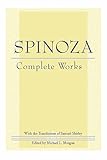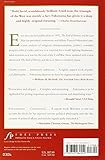I.
Why does the election of Donald Trump feel so different, given that in political history there is always continuity as well as discontinuity? He appears the antipode to Barack Obama, to such a degree that it seemed impossible that a country that solidly elected Obama twice could subsequently put Trump in office. I know Obama’s character and persona were iconic and largely cosmetic, but it is still a shock, on a symbolic level, in so many ways.
Perhaps the more instructive comparison is to George W. Bush, who was loathed by all leftists and liberals and considered near-fascist. Unbelievably, the neocons in the Bush administration all ended up in line with Hillary Clinton, and Trump appeared as something much more disturbing, unpredictable, and confrontational than Bush ever was. So what exactly is the nature of the distinction between Bush's aggressive neoconservativism and ... whatever Trump is?
We don’t know yet because we don't have a good idea of what Trump will actually do. However, if we review the record so far, this is what I think:
Bush campaigned as a “compassionate conservative.” Rhetorically, he had a moderate perspective on immigration and some other cultural issues. When he took office, it really seemed like he would be a center-right president, not much different from Bill Clinton. It was the September 11 attacks that intensified him and authorized his extreme policies. In retrospect, his ultimate goals may not have been so anomalous; he was only fanatical and buffoonish in pursuing them.
I would suggest this: to a degree, all the presidents at least since Ronald Reagan had more or less the same worldview, and differed primarily in terms of strategies to achieve an ideal order. All of them believed in an end to history, and that the end of history would be the reign of free markets and individual consumer choices. The difference between the left-neoliberals and the right-neoliberals was basically on the grounds of 1) which individual freedoms should be allowed and protected, and 2) how best to spread the Western gospel of freedom to the peripheral nations. In retrospect, the anger that liberals had toward Bush was essentially that he was incompetent, that he was going about the mission to spread liberal freedom in a clumsy and destructive way. Liberals and neoconservatives actually agreed that the world would eventually be characterized by universal citizenship in free-market states. In a way, all of them were actually right-Hegelians, reading Francis Fukuyama amicably. Clinton’s friendship with Bush and endorsements from most of his foreign-policy advisors confirmed this profound similarity.
Trump, on the other hand, rejects the civic order that the Clintons and the Bushes propounded. Instead, he stands for a politics that can be described as ethnicism (in G.M. Tamás's coinage). This is a different type of racism than the one that was practiced by the Bushes and the Clintons. Of course, I am not saying that the Bush/Clinton order was not racist. In fact it was enormously racist. But the kind of racial order that they protected and advocated was fundamentally liberal insofar as it posited an ideal citizen that, in principle, anyone (immigrant, Muslim, or person of color) could embody. There was a distinction between the ideal possibility and the empirical population management that was “necessary” because of the deficiencies of cultures and markets.
Trump represents a break with this idealism. In this regard he is a complete antagonist of Bush just as much as he is of Clinton. His claimed opposition to the Iraq War is the symptom of this. He opposes (retroactively) this war not because it was racist or imperialist but because, in a sense, it was not racist or imperialist enough. Bush believed that Iraqis could become “free,” Americans like us. In order to do this, he believed they needed to be invaded, killed, or tortured, but his ultimate belief was that Iraqis and Afghans, like all the people of the world, could be liberated and become free-market individual citizen consumers qualitatively indistinct from Americans. In the course of this struggle, Bush created an exceptional space, Guantanamo Bay, where combatants would not be recognized as potential citizens. Nonetheless, this was relegated to colonial territory, and meant to serve as a menacing outer realm, outside the nation-state itself.
In contrast, Trump believes that Muslims, for example, are intrinsically untrustworthy and cannot become true Americans, not even by giving their life in war (which of course is the traditional absolute proof of citizenship). This was the importance of the feud with the family of Humayun Khan, the “gold star” family. Trump here signified that no sacrifice could purchase recognition as a countryman. In this, he internalized a logic that was once relegated to the colonial space. This is one of the ways, and there are others, in which Trump signifies a breakdown of the civic order itself.
II.
We might reflect on our definition of racism. It seems to me that many of us think of racism as a kind of moral stain or character defect. Of course most of us know that racism is actually a material, systemic, collective thing in which we are all enmeshed, rather than a personality quirk. Nonetheless, we make a distinction between a kind of passive racism or complicity on one hand, and an active, rhetorically explicit racism on the other.
So I believe that everyone in the United States felt an intense revulsion at the awareness of the sixty million Trump voters in our midst, because of his explicitly racist persona. For white people who think of themselves as progressive, this creates an intense affect of guilt and shame. Embarrassment. Even worse for men.
However, it is perplexing that this violent racism was already all around us, in Obama’s America. We already have the militarized repression of Ferguson, mass deportations, black people shot down in the streets with impunity, etc. Hillary Clinton would not have reversed or addressed any of this. So her voters, arguably, were simply the more genteel racists.
But this seems wrong too, and it seems like simple sophistry to say that all politicians in the neoliberal era are equally bad. Because we know that in Clinton’s case there was at least the appearance of a multicultural or tolerant ideal. One could certainly see why “decent” people would vote for her and even admire her. Whereas it seems like only people who are vicious and cruel could admire Trump.
This seems, suspiciously, like a moral reading of a political problem. But, in this particular case, is moralism dispensable? It is possible that this moral revulsion is in fact something we should never forget and that we should fully endorse, and that we should validate our feelings of disgust. Moreover, shame and “white guilt” can finally function as a political weapon, because it will lead us to break ties completely with our reactionary neighbors and relatives. Maybe it is precisely a callous refusal to “understand the concerns” of those who voted Trump, even the suffering rural folk and the downwardly-mobile blue-collar workers, that is necessary now?
But might that not simply validate and support the more indifferent and apathetic racism of elites? The “politically-correct” liberals who employ more refined language while drawing the blueprints of mass incarceration? How can we find the language to articulate a disgust and rage toward them as well?
III.
We might also rethink the category of hatred. It is common among progressives and activists to view hatred itself as the enemy. Exclusion of all types is defined as hatred. We are alert, above all, to “hate speech.” It is only love that could conquer hate (or even “love trumps hate,” as Clinton’s slogan had it). Hatred is a shameful affect, and indeed one that degrades the one who hates.
But do we even have a definition of what hatred is? We know what it is like to feel hatred and to see others in the grips of this emotion. We know that it is indeed aesthetically ugly. We do not wish to feel this way.
But why does hatred exist in humans? Is it a form of sin? A diabolical temptation? Why do some have it more than others? We would like to accept everyone in their humanity, of course, so why do others not feel this way? Can we extinguish their feelings by means of therapeutic acceptance, acknowledging their pain and encouraging a productive and beneficial response? But what if this strategy is insufficient? What if our acceptance is unable to diminish their feelings of hatred toward us?
Spinoza wrote a comprehensive theory of the affects. He said, “Hatred is sorrow with the accompanying idea of an external cause. [When something, or someone, gives us sorrow, we feel hatred towards that thing or person.]”
I find this a convincing definition of hatred. In this light, doesn’t it seem that the fractured society in which we live will naturally, not pathologically, encourage feelings of hatred; because we feel sorrow and we know that this sorrow has an external cause that we cannot easily remove.
So should we not accept our capacity for hatred? Isn’t the rejection of hatred a false and idealist politics, as if we could act as if our sorrow had no cause, or that we did not feel sadness? Is it possible that our rejection of hatred is actually a result of the individualism of our society that wants to tell us that we can feel better simply by means of self-care? Perhaps we should fully acknowledge our feelings of sorrow and identify the external causes of it, developing a sharper concept of exactly the nature of our grief and its origins. Then we might truly hate, without guilt. We might consider whether it is only hatred that can lead us to identify and remove the agents of our communal sorrow.
Andrew Ryder is an independent researcher living in Seattle, Washington.


